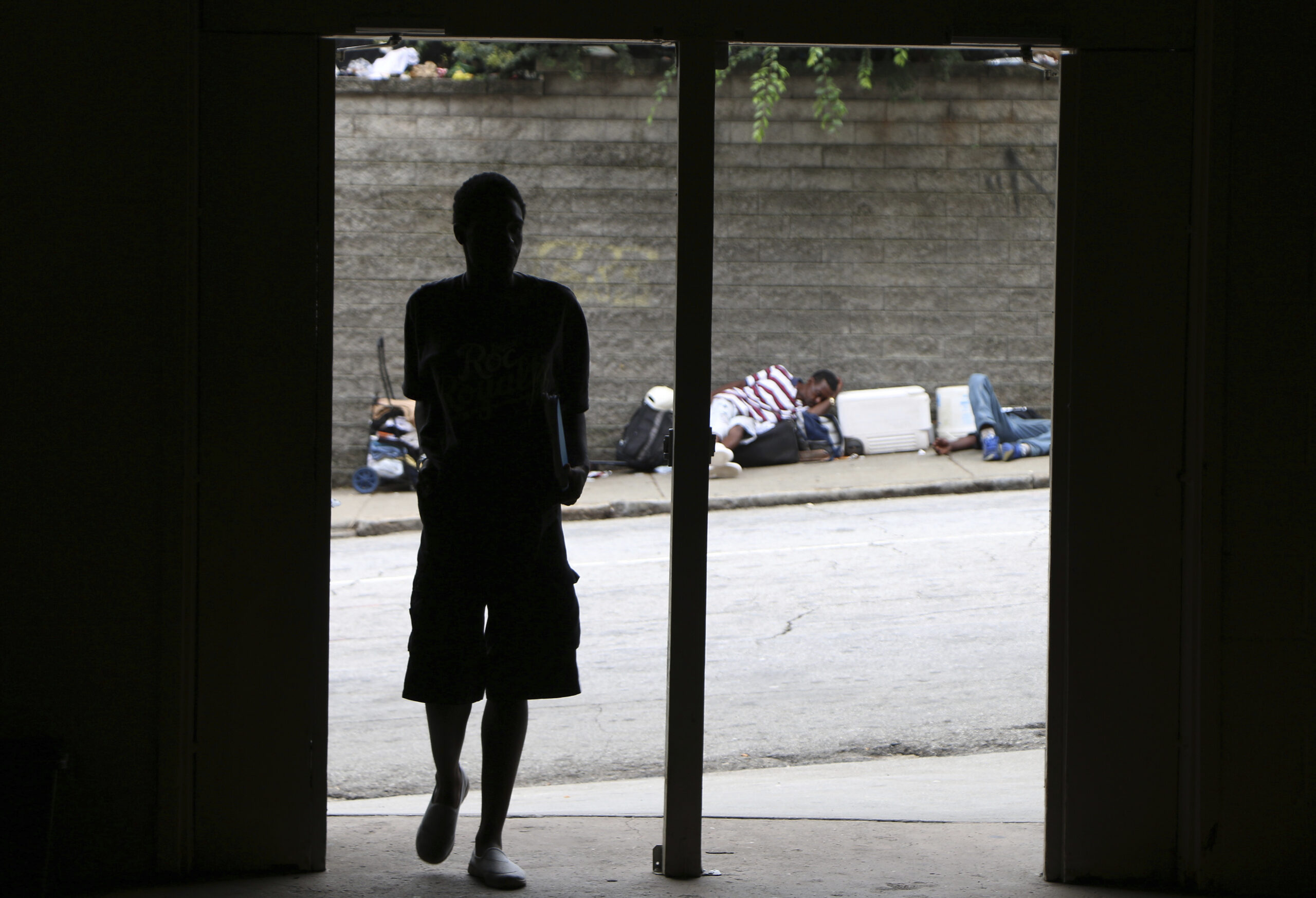Atlanta has now tested most of its residents who stay in homeless shelters for the COVID-19 virus. An effort to survey those who live outside is still underway.
The more than 2,000 tests uncovered about 30 new positive cases in shelters. That brings the total number of people reported to be homeless and have the virus to at least 55 as of Monday. There has been only one known coronavirus-related death among the city’s homeless.
In last year’s “Point-In-Time” count, the city estimated that more than 3,200 people are either living in Atlanta’s homeless shelters or outside.
To Atlanta’s point person on homelessness and director of the nonprofit Partners for Home, Cathryn Marchman, the testing results show relatively low numbers of the virus among the homeless so far.
She said providers are aware that could quickly change. But for now, she said she is cautiously optimistic.
“At this point, we can at least say we comprehensively understand what’s happening to date in our homeless system,” Marchman said.
The nonprofit health care provider MercyCare received a $200,000 grant from Fulton County to lead the testing along with the Centers for Disease Control and Prevention. The tests require a nasal swab and have been voluntary.
The positive cases uncovered in the effort were spread out among the shelter system. The provider with the highest number had 10 instances of the virus.
Tom Andrews, CEO of St. Joseph’s Health System and MercyCare, said it appeared the shelters that were more strict about quarantining their residents had fewer cases.
The CDC has not recommended that providers require negative COVID-19 tests for admittance. And, according to the city, several shelters, including Gateway, Salvation Army and Covenant House, are still accepting new people.
That is one reason why the city and its partners can’t stop testing once this latest effort is complete. Andrews said, to prevent any future outbreaks, they will have to develop a plan to continue monitoring cases in the homeless community.
“The test is only as good as it is the day it was taken,” Andrews said. “Even before the results come back, the person could have been exposed to someone who was positive.”
People in homeless shelters are especially vulnerable to the coronavirus simply because they have little space to social distance. Many are also over the age of 65 or have underlying health issues that can make the effects of the virus more severe.
Earlier this month, the city opened an isolation center in a hotel downtown for people who are homeless. But it is only available for those who are known to have the virus. As of Monday, more than 40 people were staying in the hotel.
Once clients there recover, they may have to return to shelters. Marchman said there will be case managers working with the individuals to find permanent housing, however.
This week, the city is also expected to open up as many as 250 rooms in a second hotel downtown for people who are homeless and do not yet have the virus. The units will be available to those most likely to face serious consequences because of the disease.
The city is paying for the hotel with $1.5 million in funding approved by the mayor earlier this month, Marchman said. Jack Hardin of the United Way of Greater Atlanta’s Regional Commission on Homelessness is working to match the funding with private donations.
For Georgia, the testing of Atlanta’s homeless population is a rare example of surveying an entire community for the coronavirus, whether people have symptoms or not.
Andrews said most who were found to have the virus in the last few weeks did not show a fever or report any respiratory issues. At most, they had symptoms similar to allergies.
Several cities around the country have seen significant numbers of COVID-19 among their homeless communities.
Boston tested an entire shelter and found 146 asymptomatic cases, according to WBUR. In San Francisco, the Mercury News reports that more than 100 people in the city’s largest shelter had the virus.









